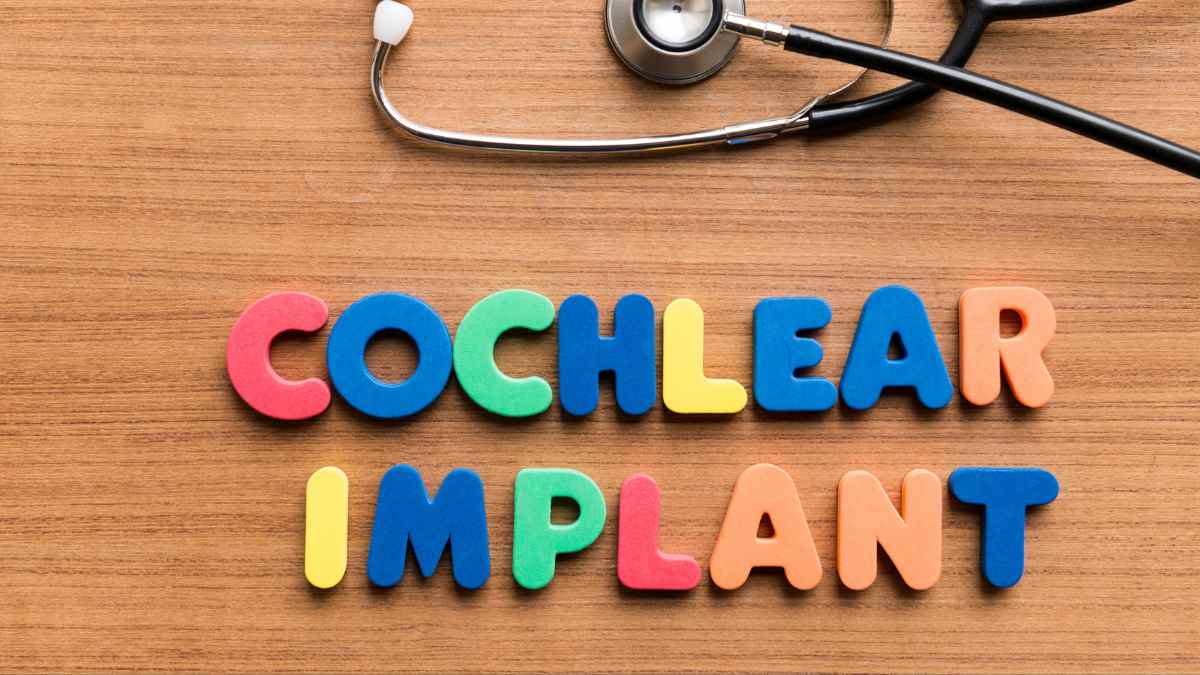
If I could go back to the first time I remember Addison covering her right ear when she experienced a loud noise (around the age of 2 years old), and push the issue with her pediatrician I would. Addison has always been sensitive to loud noises and we just assumed that it was part of being a toddler and from her numerous ear infections since birth. Never did we expect to find out at age 5 that she was completely deaf in her left ear.
How was this possible? How long has she been without hearing? Why? As our family and friends know, we adopted Addison. There was intrauterine drug exposure during the pregnancy so we did expect some challenges but not this. We have been with her since she was born so we were struggling with the question “How was this not detected sooner?”. She had passed her hearing test at birth and the year before at age 4.
After numerous lengthy hearing tests, and consultations with the exemplary staff of Cleveland Clinic’s Children Hearing Center, it was determined that her hearing loss was congenital and a result of exposure to CMV, Cytomegalovirus. CMV is a common infection from the herpes virus and can cause hearing loss and other developmental issues. The other developmental issues also included potential blindness, and heart problems as examples, but fortunately they were quickly ruled out for Addison.
While tough to hear this news, we also know there are far worse things in life we could have been up against. So now what? With the support and guidance of the amazing Dr. Anne and her team at Cleveland Clinic Children’s Hearing Center, we journeyed down the path of a cochlear implant. A normal hearing aid wouldn’t be able to help someone with complete hearing loss. Alternatively, a cochlear implant doesn’t restore normal hearing but can help those with hearing loss understand speech and sounds.
The cochlear implant is connected to the auditory nerve and once activated, it helps the brain adapt and learn to hear, which can take 3 to 6 months. We were very eager to move forward with the surgery as Addison spent all of her kindergarten year learning and taking everything through her right ear, which you can imagine can be over-stimulating and exhausting for anyone let alone a child. First grade is a whole new ball game for children and their education and we didn’t want her to struggle with school.
After almost a year after her failed hearing test, On April 3rd, 2024, our brave little girl had her cochlear implant surgery. Addison came through surgery like a champ, 10 times better than Mom and Dad that’s for sure. Two weeks later, after the swelling had subsided, the cochlear sensor was activated and we were on our way to training her brain!
It’s 5 months post-surgery and Addison has started first grade and her cochlear nerve is responding well. We are in the process of working with her school and the district audiologist to make sure she has the resources needed to support her in the classroom. Addison will need a little extra help with speech therapy and reading but our experience overall has been very positive and exciting, which we are forever grateful for. I can’t imagine how much more difficult Addison’s learning experience would be if didn’t have the access or means to this advanced medical technology.
We still have a long way to go and rather than belabor my mom’s guilt or the things I wish we would have done differently, I’ll share and reinforce the positives that came out of this experience. It was every parent’s fear of how their child will be treated by other children.
We all know children have no filter at times and can say mean things. I was very worried about how her friends and peers would perceive Addison wearing her cochlear sensor. There’s a green light that blinks so we know it’s on and connected properly so it stands out. To my surprise and joy, other kids have been so kind and generally interested to understand why she has this cochlear. Addison simply responds “It’s my cochlear because I’m deaf and it helps me hear” and they move on. She’s also met several other kids in school who have one or are on their way to getting one. Children are more resilient than you think, it’s so true.
Most of all, I’m lucky to have this experience on the board of OEF, as it’s given me insight into speech therapy, and communication needs for children that will help my family navigate Addison’s disability with hearing loss.

